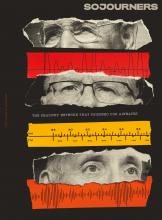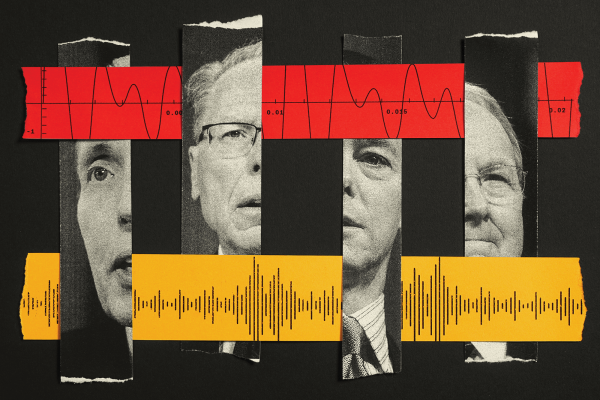ANNE NELSON IS a child of Stillwater, Okla. Though she left home to attend Yale University, traveled as a reporter to Central America in the 1980s, and has lived in New York City for four decades, Nelson stays connected to her hometown.
In 2004, while visiting family back in Oklahoma, she noticed something about the conversations on talk radio as she drove across town. People in Oklahoma were not simply processing the news through different filters than her neighbors in New York City. They were getting different news—a whole different story about what was supposedly really happening in America. A good reporter, Nelson wanted to know why.
Her research led her to a group called the Council for National Policy. Founded in 1981 by extreme conservatives who cut their teeth in right-wing politics and the struggle for power within the Southern Baptist Convention in the 1970s, this little-known network brought together Republican political operatives and preachers of the new Religious Right with independent radio and media companies. In the words of Richard DeVos, a longtime member, the CNP became a coordinating committee for the “donors and the doers” of reactionary right-wing politics. A strange conversation on talk radio led Nelson into the inner workings of an elite network that has labored for four decades to convince everyday Americans in the heartland that they cannot trust East Coast “elites.”
In Nelson’s recent book Shadow Network: Media, Money, and the Secret Hub of the Radical Right , the longtime professor at Columbia University’s School of Journalism and School of International and Public Affairs invites readers to see what’s happening in the United States today as a product of the propaganda that CNP produces. Anyone who has been confounded by the willingness of some Christians to march in lockstep with Donald Trump and the Republican Party through the personal scandals and political controversies of the past four years would benefit from placing a list of the characters from Nelson’s new book beside their daily news source. People who have defended Trump from the White House—Steve Bannon, Mike Pence, Kellyanne Conway—have in fact been connected through the CNP for decades to the white evangelicals—James Dobson, Tony Perkins, and Ralph Reed among them—who have been most eager to praise Trump as a champion of “religious values.” On the same list, less recognizable names point to radio and television networks that offer an alternative story to the fact-based journalism Trump and his enablers attack as “fake news,” to the data companies that empower targeted political organizing, and to the money that makes all of this possible.
Critical books in recent years, such as Jane Mayer’s Dark Money and Nancy MacLean’s Democracy in Chains, have uncovered the influence of big money in efforts to undermine American democracy. But in an era of the most extreme inequality since the Gilded Age, how do oil-rich plutocrats persuade everyday Americans that someone like Donald Trump represents a populist agenda? The answer to that question has everything to do with the way Christian values have been reframed in American public life by members of the CNP over the past 40 years.
As a growing movement of Christians organizes to challenge the Religious Right, Shadow Network is an important resource. Nelson, who is herself a member of the Episcopal Church, sat down with me to talk about how her research can inform faith-rooted organizing to reclaim democracy for the common good.
Read the Full Article

